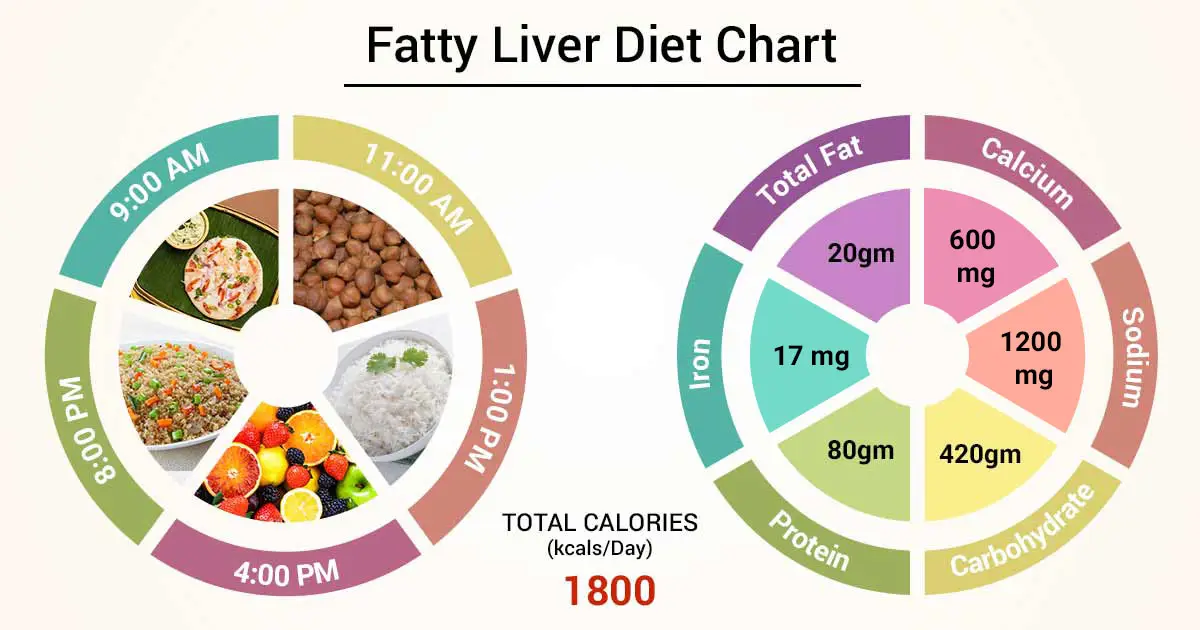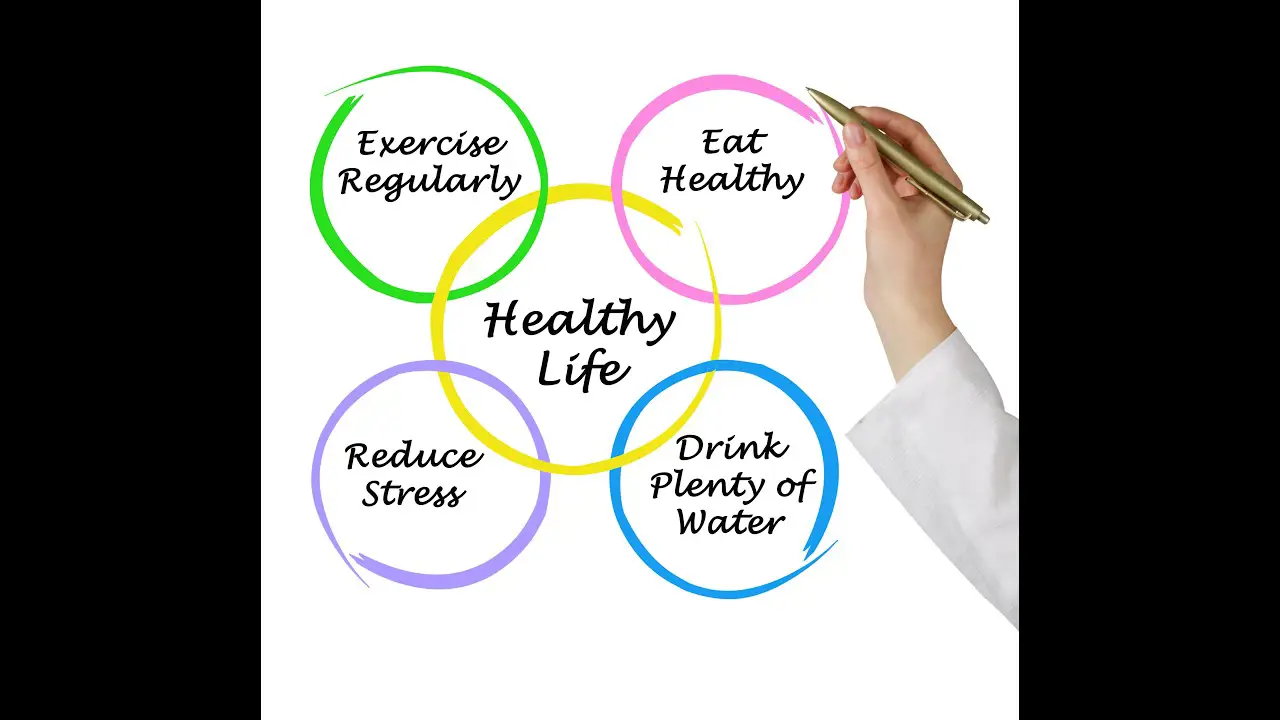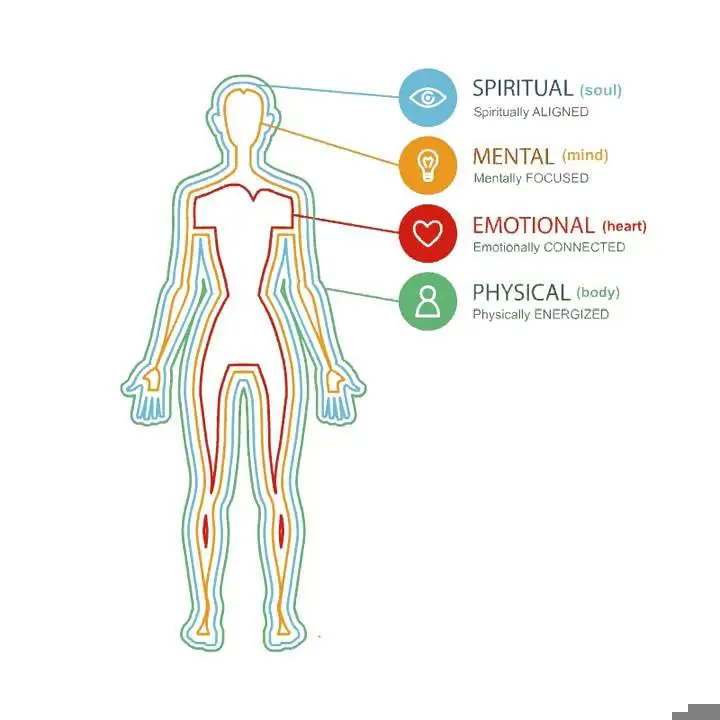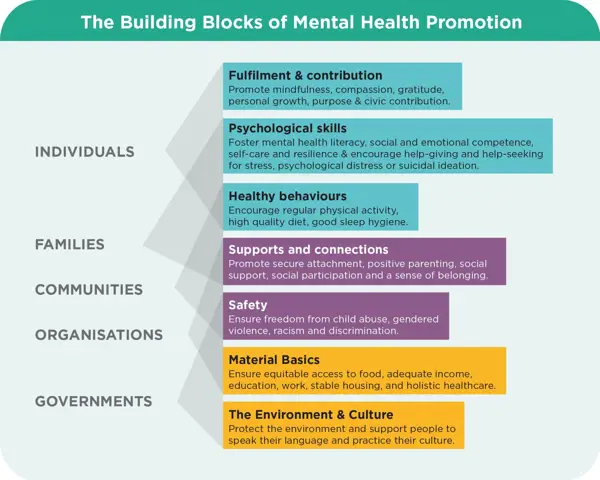Table of Contents
- Introduction
- Physical Activity
- Healthy Diet
- Stress Management
- Quality Sleep
- Social Support
- Mental Well-being
Introduction
Health promotion encompasses various factors that contribute to overall well-being. In this article, we will delve into the elements that foster health promotion and provide insights into maintaining a healthy lifestyle.
Physical Activity
Engaging in regular physical activity is crucial for promoting good health. Whether it's participating in sports, going for walks, or joining fitness classes, staying active enhances cardiovascular health, strengthens muscles and bones, and helps manage weight effectively.
Physical activity plays a crucial role in promoting good health and overall well-being. Several factors contribute to the promotion of health through physical activity:
- Regular Exercise: Engaging in regular exercise helps maintain a healthy weight, strengthens the immune system, and reduces the risk of chronic diseases such as heart disease, diabetes, and certain cancers.
- Mental Well-being: Physical activity not only has a positive impact on physical health but also improves mental well-being. It helps reduce stress, anxiety, and symptoms of depression, promoting better overall mental health.
- Improved Cardiovascular Fitness: Regular physical activity, such as brisk walking, running, or cycling, strengthens the heart and improves cardiovascular fitness. This, in turn, reduces the risk of heart diseases and improves overall heart health.
- Enhanced Muscular Strength and Flexibility: Engaging in strength training exercises helps improve muscular strength and endurance, making everyday tasks easier. Incorporating flexibility exercises promotes joint mobility and reduces the risk of injuries.
- Weight Management: Physical activity helps control body weight by burning calories and building muscle mass. Regular exercise combined with a healthy diet contributes to weight management and reduces the risk of obesity-related health problems.
- Improved Sleep Quality: Physical activity has been linked to improved sleep quality. Regular exercise helps regulate sleep patterns, allowing for better rest and enhancing overall sleep quality.
These factors highlight the importance of physical activity in promoting good health and well-being. Incorporating regular exercise into one's daily routine can have numerous positive effects on both physical and mental health.

Healthy Diet
A healthy diet plays a fundamental role in maintaining overall well-being. Consuming a balanced mix of fruits, vegetables, whole grains, lean proteins, and healthy fats provides the necessary nutrients to support bodily functions, prevent chronic diseases, and boost the immune system.
A healthy diet plays a crucial role in promoting overall health and well-being. Let's explore some of the key factors that contribute to health promotion:
1. Balanced Nutritional Intake
Eating a balanced diet that includes all essential nutrients is essential for maintaining good health. This includes consuming a variety of fruits, vegetables, whole grains, lean proteins, and healthy fats.
2. Portion Control
Controlling portion sizes helps in preventing overeating and ensures a balanced intake of calories. This helps to maintain a healthy weight and prevents the risk of various health conditions like obesity, diabetes, and heart disease.
3. Adequate Hydration
Drinking an adequate amount of water throughout the day is important for the proper functioning of the body. Staying hydrated supports digestion, circulation, and helps to flush out toxins.
4. Limiting Processed Foods
Avoiding or limiting processed foods that are high in added sugars, unhealthy fats, and artificial ingredients is essential. These foods can contribute to weight gain and increase the risk of chronic diseases.
5. Regular Physical Activity
Engaging in regular physical activity along with a healthy diet promotes overall fitness and well-being. Exercise helps to strengthen muscles, improve cardiovascular health, and boost metabolism.
6. Mindful Eating
Practicing mindful eating involves paying attention to the body's hunger and fullness cues. This helps to avoid emotional eating and develop a healthy relationship with food.
7. Moderation
Maintaining a balanced approach to eating by enjoying all foods in moderation is key. Depriving oneself of favorite foods may lead to unhealthy eating patterns, so allowing occasional treats can help maintain long-term dietary habits.
By incorporating these factors into your lifestyle, you can achieve a healthy diet and promote overall health and well-being.

Stress Management
Managing stress is crucial for health promotion. Chronic stress negatively impacts physical and mental health. Techniques such as mindfulness, meditation, exercise, and pursuing hobbies can effectively reduce stress levels and improve overall well-being.
Stress management is crucial for maintaining overall well-being and health. It involves various strategies and techniques to reduce or cope with stress in daily life.
There are several factors that contribute to health promotion, specifically in the context of stress management. These factors play a vital role in maintaining physical, mental, and emotional well-being. Here are some key factors:
- Healthy Lifestyle: Adopting a healthy lifestyle is crucial in stress management. This includes regular exercise, balanced diet, adequate sleep, and avoiding unhealthy habits like smoking or excessive alcohol consumption. A healthy lifestyle helps in boosting immunity and resilience against stress.
- Supportive Social Connections: Building and maintaining positive relationships is an important factor in stress management. Strong social connections provide emotional support, companionship, and a sense of belonging. Engaging with family, friends, or participating in community activities can greatly contribute to reducing stress levels.
- Effective Time Management: Efficiently managing time can help in reducing stress and improving overall productivity. Prioritizing tasks, setting realistic goals, and utilizing time management techniques can reduce stress caused by excessive workload or feeling overwhelmed.
- Self-Care Practices: Engaging in self-care practices is crucial for stress management. This includes activities such as practicing mindfulness, relaxation techniques like deep breathing or meditation, engaging in hobbies or activities that bring joy, and taking breaks to recharge. Prioritizing self-care helps in reducing stress and promoting overall well-being.
- Stress Awareness and Coping Strategies: Being aware of stress triggers and having effective coping strategies is essential for stress management. This includes identifying and addressing stressors, utilizing problem-solving techniques, seeking professional help if needed, and implementing healthy coping mechanisms like engaging in physical activities or seeking emotional support.
Overall, stress management is greatly influenced by factors such as maintaining a healthy lifestyle, fostering supportive relationships, effective time management, practicing self-care, and developing stress awareness and coping strategies. By addressing these factors, individuals can actively promote their health and well-being in the face of stress.

Quality Sleep
Adequate sleep is essential for promoting optimal health. Getting enough high-quality sleep rejuvenates the body, supports cognitive function, improves mood, and enhances the immune system. Establishing a consistent sleep routine and creating a comfortable sleep environment are key factors in achieving quality rest.
Getting quality sleep is an essential factor in promoting overall health and well-being. Here are some key factors that contribute to quality sleep:
1. Consistent Sleep Schedule:
Establishing a consistent sleep schedule helps regulate the body's internal clock and promotes better sleep. Going to bed and waking up at the same time every day, even on weekends, can improve sleep quality.
2. Comfortable Sleep Environment:
A comfortable sleep environment plays a crucial role in achieving quality sleep. Ensure your bedroom is dark, quiet, and at a comfortable temperature. Investing in a good mattress, pillows, and appropriate bedding can also enhance your sleep quality.
3. Healthy Sleep Habits:
Developing healthy sleep habits contributes to quality sleep. Avoiding caffeine and electronic devices before bed, practicing relaxation techniques, and establishing a pre-sleep routine can help prepare your body and mind for a restful night's sleep.
4. Regular Physical Activity:
Engaging in regular physical activity during the day can promote better sleep at night. Regular exercise helps regulate the sleep-wake cycle, reduces stress, and enhances overall sleep quality. However, avoid intense exercise too close to bedtime as it may interfere with sleep.
5. Balanced Diet:
Eating a balanced diet that includes nutrient-rich foods supports quality sleep. Avoid heavy meals, caffeine, and sugary foods close to bedtime as they can disrupt sleep. Instead, opt for light snacks that promote relaxation, such as a small serving of fruit or a warm herbal tea.
6. Stress Management:
Managing stress effectively is crucial for quality sleep. Incorporate stress-reducing activities into your daily routine, such as practicing mindfulness or engaging in hobbies. By managing stress, you can calm your mind and prepare for a peaceful sleep.
7. Sleep-Friendly Lifestyle:
Adopting a sleep-friendly lifestyle involves creating an overall environment conducive to quality sleep. This includes minimizing exposure to excessive noise, light, and disturbances, as well as ensuring that your sleeping area is dedicated solely to sleep and relaxation.
By considering these factors and prioritizing quality sleep, you can greatly contribute to your overall health and well-being.

Social Support
Social connections and support systems are vital for health promotion. Engaging in positive relationships, being part of a community, and seeking emotional support contribute to mental well-being and can reduce the risk of mental health disorders. Nurturing and maintaining healthy relationships play a significant role in overall health.
Social support plays a crucial role in promoting overall health and well-being. It encompasses various factors that contribute to positive health outcomes. Let's explore some key aspects of social support in health promotion:
1. Emotional Support
One of the important factors of social support is emotional support, which involves having someone to talk to, share concerns, and provide empathy. It helps individuals manage stress, cope with challenging situations, and improves their mental health.
2. Practical Support
Practical support refers to the tangible assistance offered by friends, family, or community. It includes helping with daily tasks, providing transportation, or assisting with errands. This support allows individuals to maintain a healthy lifestyle and enhances their physical well-being.
3. Informational Support
Informational support involves providing knowledge, guidance, and advice to individuals seeking to make health-related decisions. This support can come from healthcare professionals, community groups, or even online resources. Access to accurate information empowers individuals to make informed choices and improve their health outcomes.
4. Belongingness and Social Integration
Being socially connected and feeling a sense of belongingness contributes to better health promotion. Strong social ties with family, friends, or communities help reduce feelings of isolation and loneliness, leading to improved mental and physical well-being.
5. Role Modeling
Social support also involves positive role modeling. When individuals witness others practicing healthy behaviors such as regular exercise, nutritious eating, or stress management techniques, they are more likely to adopt and maintain these behaviors themselves, thus promoting their own health.
In conclusion, social support encompasses various factors that are crucial for health promotion. Emotional support, practical support, informational support, belongingness, and role modeling all play a vital role in fostering healthier lifestyles and enhancing overall well-being.

Mental Well-being
Prioritizing mental health is essential for overall health promotion. Taking care of one's mental well-being involves practicing self-care, managing emotions, seeking therapy or counseling when needed, and addressing mental health issues without stigma. Cultivating resilience and adopting positive coping strategies significantly contribute to mental well-being.
Mental well-being is crucial for overall health and quality of life. It refers to a person's psychological and emotional state, including their ability to cope with everyday stresses and enjoy life to its fullest.
Factors of Health Promotion
- Physical Activity: Engaging in regular physical activity not only improves physical health but also has significant benefits for mental well-being. Exercise releases endorphins, the body's natural mood enhancers, which can alleviate stress, reduce symptoms of anxiety and depression, and boost overall mental well-being.
- Social Support: Having strong social connections and support networks plays a vital role in mental health promotion. Interacting with friends, family, and communities helps reduce feelings of loneliness, increases self-esteem, and provides a sense of belonging and purpose.
- Nutrition: A healthy diet rich in essential nutrients, such as omega-3 fatty acids and antioxidants, is beneficial for mental well-being. Nutrient deficiencies can negatively impact mood and cognitive function, while a balanced diet can support brain health and improve mental resilience.
- Sleep: Adequate and quality sleep is crucial for maintaining good mental health. Poor sleep can contribute to feelings of irritability, mood swings, and reduced ability to cope with stress. Creating a sleep routine and ensuring a restful environment can promote better mental well-being.
- Stress Management: Effective stress management techniques, such as relaxation exercises, meditation, and time management, are important for mental health promotion. High levels of stress can negatively impact mental well-being, while coping mechanisms can help individuals maintain a sense of calm and balance.
- Healthy Coping Strategies: Developing healthy coping mechanisms to deal with life's challenges is crucial for mental well-being. Engaging in hobbies, practicing mindfulness, seeking therapy or counseling, and expressing emotions constructively are some examples of positive coping strategies.
In conclusion, mental well-being is influenced by various factors of health promotion, including physical activity, social support, nutrition, sleep, stress management, and healthy coping strategies. Incorporating these elements into daily life can significantly contribute to improving mental health and overall well-being.

Key Takeaways
- Regular physical activity is crucial for overall well-being.
- A balanced and healthy diet supports bodily functions and prevents chronic diseases.
- Effective stress management techniques contribute to overall health promotion.
- Adequate sleep rejuvenates the body and enhances cognitive function.
- Social support and positive relationships are essential for mental well-being.
- Prioritizing mental health through self-care and seeking help when needed is crucial.
FAQ
Q: How often should I engage in physical activity?
A: It is recommended to engage in at least 150 minutes of moderate-intensity aerobic activity or 75 minutes of vigorous-intensity aerobic activity each week.
Q: Can diet alone promote health?
A: While diet is a crucial component, maintaining an overall healthy lifestyle involves a combination of factors including physical activity, stress management, and social connections.
Q: What are some stress management techniques I can try?
A: Techniques such as deep breathing exercises, meditation, yoga, and engaging in hobbies or activities you enjoy can help manage stress effectively.
Q: How many hours of sleep do adults need?
A: Most adults require 7-9 hours of sleep per night for optimal health and well-being.
Q: How can I seek social support?
A: Engage in social activities, join community groups or clubs, reach out to friends and family, and consider participating in support groups or therapy if needed.
Q: What can I do to improve my mental well-being?
A: Prioritize self-care activities, develop healthy coping mechanisms, maintain a positive mindset, and seek professional help when necessary.



Recent Comments